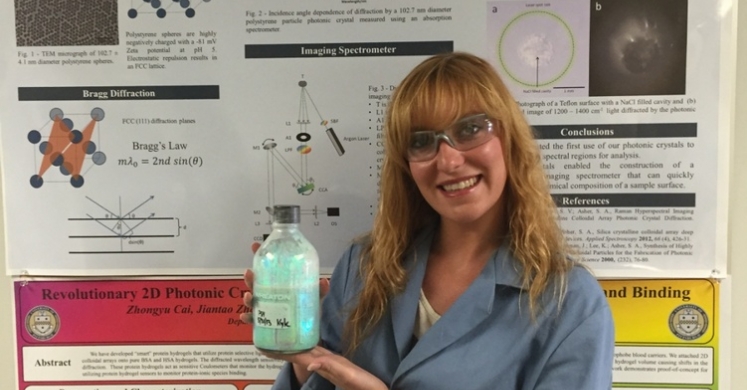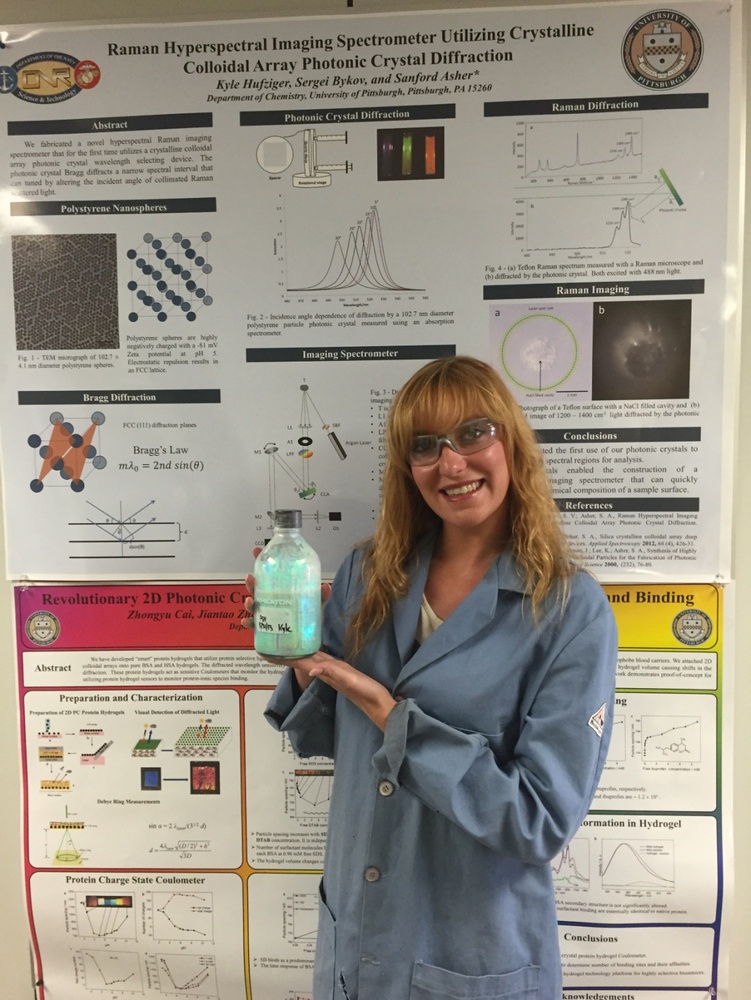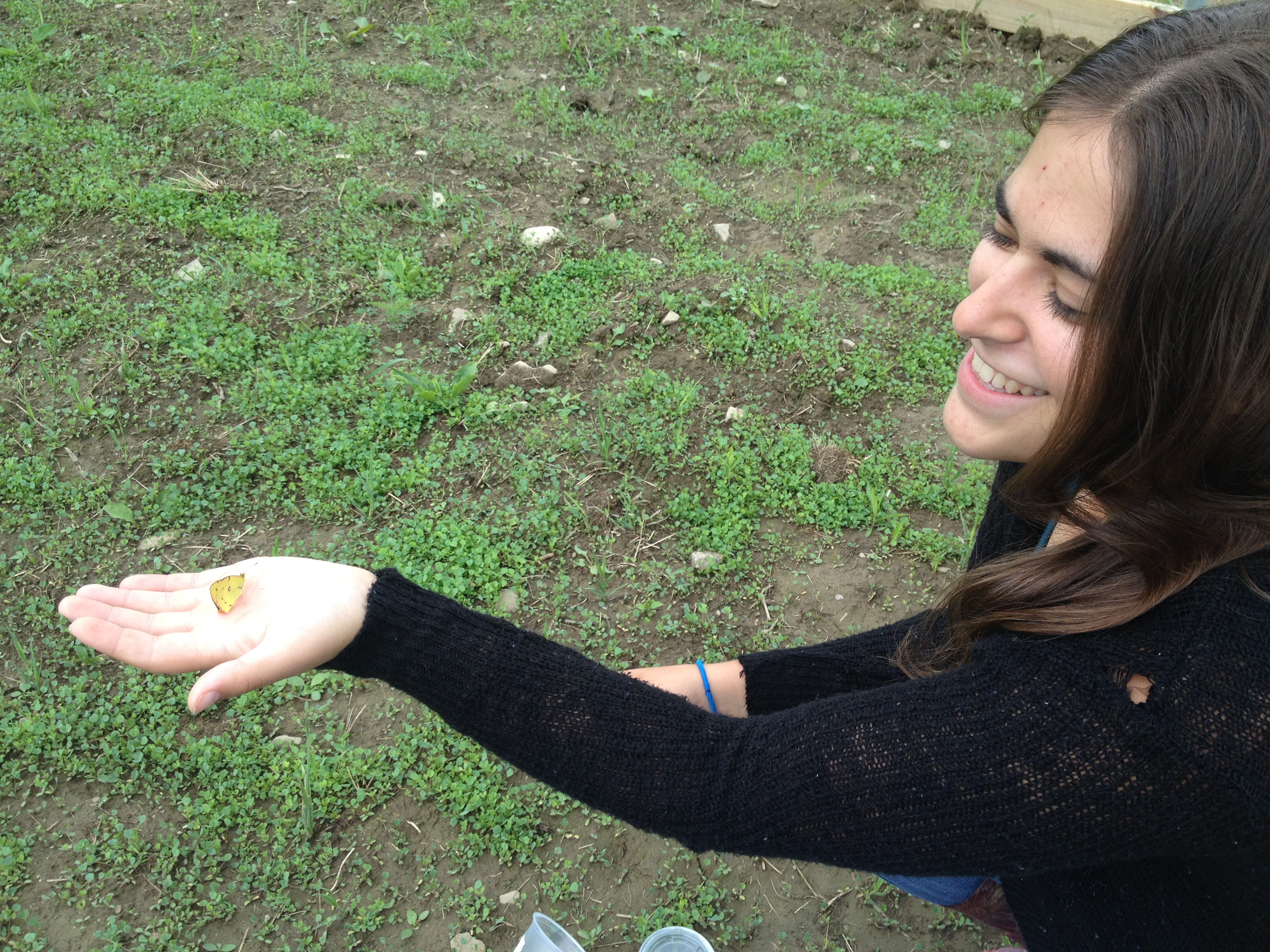Blog

Interview with a Scientist: Lisa Limeri and Natasha Smith
If there is one segment of society that is often misunderstood, it is people who work in science fields. Public perception of scientists tends to lean towards lab coats, crazy hair, and beakers full of chemicals, especially in the eyes of children. In reality, most scientists are just regular people who want to make the world a better place through scientific discovery. The best way to dispel the myth that scientists are boring or crazy is to get to know them; the purpose of this segment is to talk with real scientists to ask them what they love about their jobs and why they think their work is fun and important.
This weekend we will be featuring our Fall 2015 Science Communication fellows, Lisa Limeri and Natasha Smith, at our "Meet a Scientist" public program. The Science Communication Fellowship program at Phipps seeks to bring scientists and public audiences together in face-to-face public interactions that promote appreciation and understanding of current scientific research and its application. As part of this programming, Phipps will be hosting a "Meet a Scientist" public program this Saturday, January 16th from 1:30 until 3:30 PM in the Tropical Forest Palm Circle, where visitors can engage with our science communication fellows and learn all about their research and occupations and even see the very instruments and equipment utilized everyday by scientists. Let's get to know the fellows!
Science Communication Fellow, Lisa Limeri
Hi, I’m Lisa! I am a fourth year Ph.D. student in biological sciences at the University of Pittsburgh. With my research, I seek to understand why there is such diversity in color patterns among animals. Colors can serve a variety of functions, including attracting mates, hiding from predators and communicating with other animals.
I became a scientist because I was fascinated with exciting stories of biologists who got to travel to exotic locations and discover cool, crazy things that animals do. I became fascinated with animal behavior in my introductory biology class in college and knew I wanted to discover a cool part of life for myself.
My dream has come true dozens of times over since starting graduate school. I’ve been able to travel in search of exotic butterflies, from Canada, to Georgia, to even Costa Rica! During my second year, I was fortunate enough to take a three month long field ecology course traveling all over Costa Rica, experiencing numerous different biomes and studying animals that live there.

I’ve learned that the most important skill in science is resiliency and creativity. Experiments so often fail for unpredictable reasons and the key to success is crafting creative solutions and new approaches.
As much as I love doing science, I’ve learned that I love talking about science even more! I truly enjoy sharing my passion for science and awe for the natural world with other people – whether it be middle school students during my classroom outreach events, college students when I’m teaching courses, or the general public at events such as Carnegie Science Center’s Sci-Tech Festival or Phipps Conservatory’s 'Meet a Scientist' event! I think science education is important because if people get excited about the great things science is achieving, there will be more funding available for important scientific advancements. Furthermore, children who get excited about science at a young age may grow up to unveil great discoveries that will aid future human society. Perhaps most importantly, an appreciation for the amazing things we have discovered through science can bring joy and awe to everyone.
Science Communication Fellow, Natasha Smith
My name is Natasha Smith, I am a PhD candidate in the Department of Chemistry at the University of Pittsburgh. I study the physics of responsive polymers and how light interacts with ordered materials. Polymers are all around you, from plastic bottles and contact lenses to superglue and paint. Many polymer chemists are developing new materials that make our lives a little better, like faster drying paints or biodegradable plastics. I am working to design new colorful materials that can detect harmful molecules and bacteria in our environment.

Why did you become a scientist?
I’ve always loved exploring the world around me and figuring things out, even as a young girl. I remember when I was in middle school my dad would bring home dry ice from work so I could experiment with a substance I had never seen before. Once I got to college, it seemed natural to pursue a career in science. I was originally a Forensic Science major at West Virginia University, but I fell in love with chemistry during organic chemistry in my second year. I switched my major to chemistry the next semester and started doing undergraduate research for my organic professor.
What is the most exciting thing you’ve ever done at work?
I get really excited when I give a talk at a scientific conference. Scientific conferences are a chance to share your work with your peers from around the world, learn about new cutting edge techniques, and meet world renowned scientist.
What skills do you use in your job?
As an experimental chemist, the most important skills I need are creativity and persistence. There are always going to be walls that seem insurmountable in research; every scientist needs to be creative in figuring out how to get over these walls. They also need persistence, because often times the first try is far from the last try.
What is your favorite part of your job?
The most rewarding aspect of being a scientist is seeing your ideas come to fruition. Publishing a paper in a peer reviewed journal on an idea that came completely from my own creativity and hard work is an indescribable feeling.
If you weren’t a scientist, what would you be?
If I wasn’t a chemist, I would like to be a therapist. I think helping people work through tough times and overcome problems would be very gratifying.
Why is science education important?
It is important that every child grows up with an appreciation for science so that they understand the significance of scientific funding and how it helps our country continue to advance and remain competitive in the global market. More importantly, science education will spark curiosity and wonder in children that will later lead to inventions and advancements we haven’t imagined yet that will promote the health and happiness of humans.
If you'd like to learn more about our Science Communication fellows and their work stop by the Tropical Forest Palm Circle on Saturday, January 16th from 1:30 until 3:30 PM for our "Meet a Scientist" Public Program.
Photographs provided by Science Communciation Fellows.


